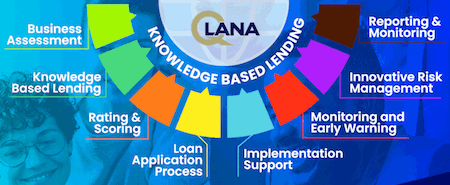COVID-19  is having significant effects on our personal and professional lives. We have heard a lot of suggestions of how financial institutions can handle this critical situation. Summarizing the information of the past days and weeks, we see three key steps, “communication,” “learning” and “acting,” which can be applied among four target groups: “staff,” “clients,” “investors” and “regulators.” We keep our findings short and focused:
is having significant effects on our personal and professional lives. We have heard a lot of suggestions of how financial institutions can handle this critical situation. Summarizing the information of the past days and weeks, we see three key steps, “communication,” “learning” and “acting,” which can be applied among four target groups: “staff,” “clients,” “investors” and “regulators.” We keep our findings short and focused:
Staff:
Communicate: Staff members work from home or provides essential services under stress. Understand their worries. Show empathy for their problems. Communicate regularly through multiple channels. Encourage collaboration.
Learn: Is communication technology working? What are the personal challenges? How can staff stay motivated? Can you maintain current staff levels? What support is offered from local or state government? What can you learn from your staff? Is staff aware of how to handle a COVID-19 infection?
Act: Your staff needs your leadership. Encourage your managers to conduct regular calls with staff. Coach your teams as they learn to work from offsite, which can be challenging for both technical and personal reasons. Use various communication channels. Show trust in your team members when they work from home, but also guide them to stay productive. Have backup plans in place, in case of infections. If you need to take cost-saving measures, such as staff reductions or salary cuts, explain them well.
Clients:
Communicate: Assume all clients are affected. Ask them about the implications of this. Convey your support, show understanding and offer expertise. Explain the institution’s emergency procedures. Consider how the lack of physical meetings can create issues, such as for group lending.
Learn: How are clients managing the crisis? What are the financial and non-financial problems? What measures are clients taking? How long will their cash last? How are other financial services providers approaching these problems? What is the level of public support?
Act: This is the time to deepen relationships with clients. Demonstrate that you care. Share information and advice – from sanitation to sector information to knowledge about support programs. Stop new routine disbursements, but consider emergency overdrafts. Be smart on collection – deferring collection is fine if it is based on an explicit agreement. Deploy tiered restructuring policies. There is no benefit in aggressive collection. Share knowledge with clients via webinars, emails, SMS and calls. Help clients migrate to cashless payments, but be aware that digital channels may be less accepted by clients than you expect. Use your CRM system to collect and assess information.
Investors:
Communicate: Inform your investors proactively about the situation as it evolves. Establish a regular and frequent communication schedule. Explain how staff and clients are handling the situation. Explain what measures are being offered to clients. Explain the market and regulatory situation. Provide portfolio information: new business, FX risk, credit risk, arrears ratio, deferral requests and changes in deposit levels. Ask investors about their experience and approaches to other financial services providers’ challenges.
Learn: Understand the repayment schedules of your own debt. Understand the status of covenants, and project any potential covenant breaches. How vulnerable is your institution to lower revenues, higher operating expenses and increased defaults?
Act: Request waivers for covenant breaches. Implement significant but careful cost-cutting measures. Postpone payments where possible. Tap your available credit lines; the cost of surplus liquidity is secondary. Bring your investors together to negotiate additional funding. Organize regular update calls. Communicate changes proactively.
Regulators:
Communicate: Governments and financial regulators are trying to support their constituents, primarily the workforce and vulnerable populations. Central banks have already published guidelines on how to handle cash payments, transfer fees, and mortgage or other loan payments during the crisis. Keep regular communication channels open.
Learn: Understand the mindset of regulators and how willing they are to implement various support measures. Try to understand the situation regarding FX risk.
Act: Lobby for policy measures that can touch your target clients, such as emergency liquidity lines and post-crisis business recovery lines.
Final words
The COVID-19 crisis will likely be long and significant, but it does not change the case for impact investment. To the contrary, social responsibility is more needed and its case more valid than ever. This is the time when we will learn who takes impact seriously. At Q-Lana, we are here to help you in the difficult months to come.
This article was written by Christian Ruehmer, Co-Founder of Q-Lana – Knowledge-based Lending. Q-Lana, the sponsor of this feature, digitizes credit processes for financial institutions with the goals of improving risk management, efficiency and portfolio management.
Similar Posts:
- SPECIAL REPORT: Agents for Impact – We Make Positive Impact Investable!
- SPECIAL REPORT: Inclusivity in Capital Markets Demands Sustainability Reporting
- SPECIAL REPORT: Investors, MFIs Continue to Wrestle with Sustainable Finance Disclosures Regulation (SFDR) #EMW2023
- SPECIAL REPORT: Partner with Agents for Impact, and We’ll Drive Impact Together!
- MICROFINANCE PAPER WRAP-UP: “Determinants of Choice of Credit Source Among Clients of Microfinance Systems in the Upper West Region of Ghana,” by Paul Bata Domanban et al
